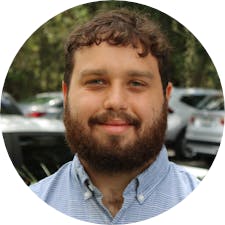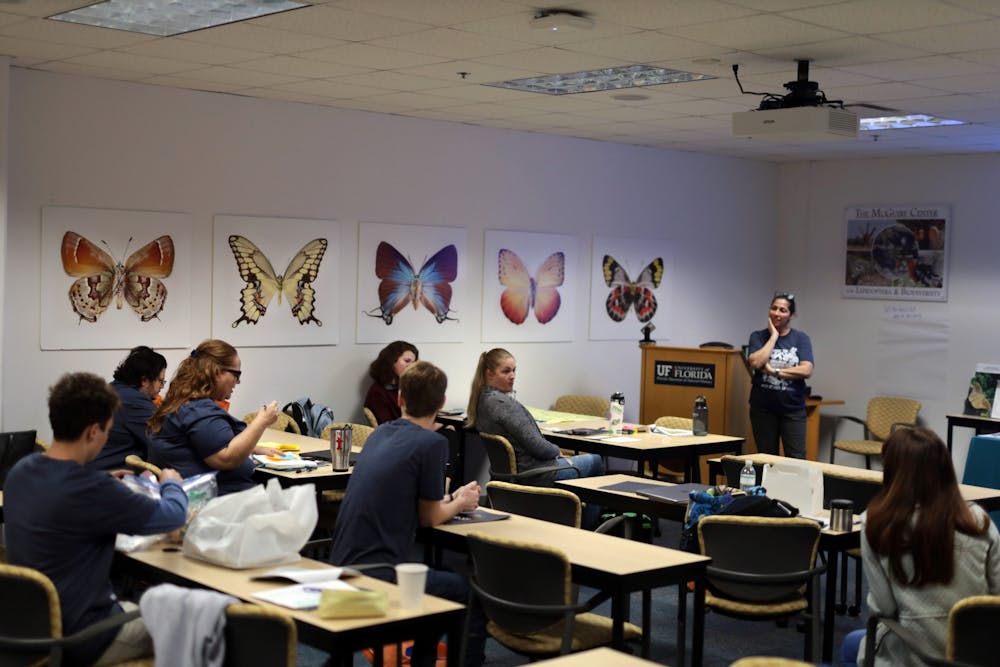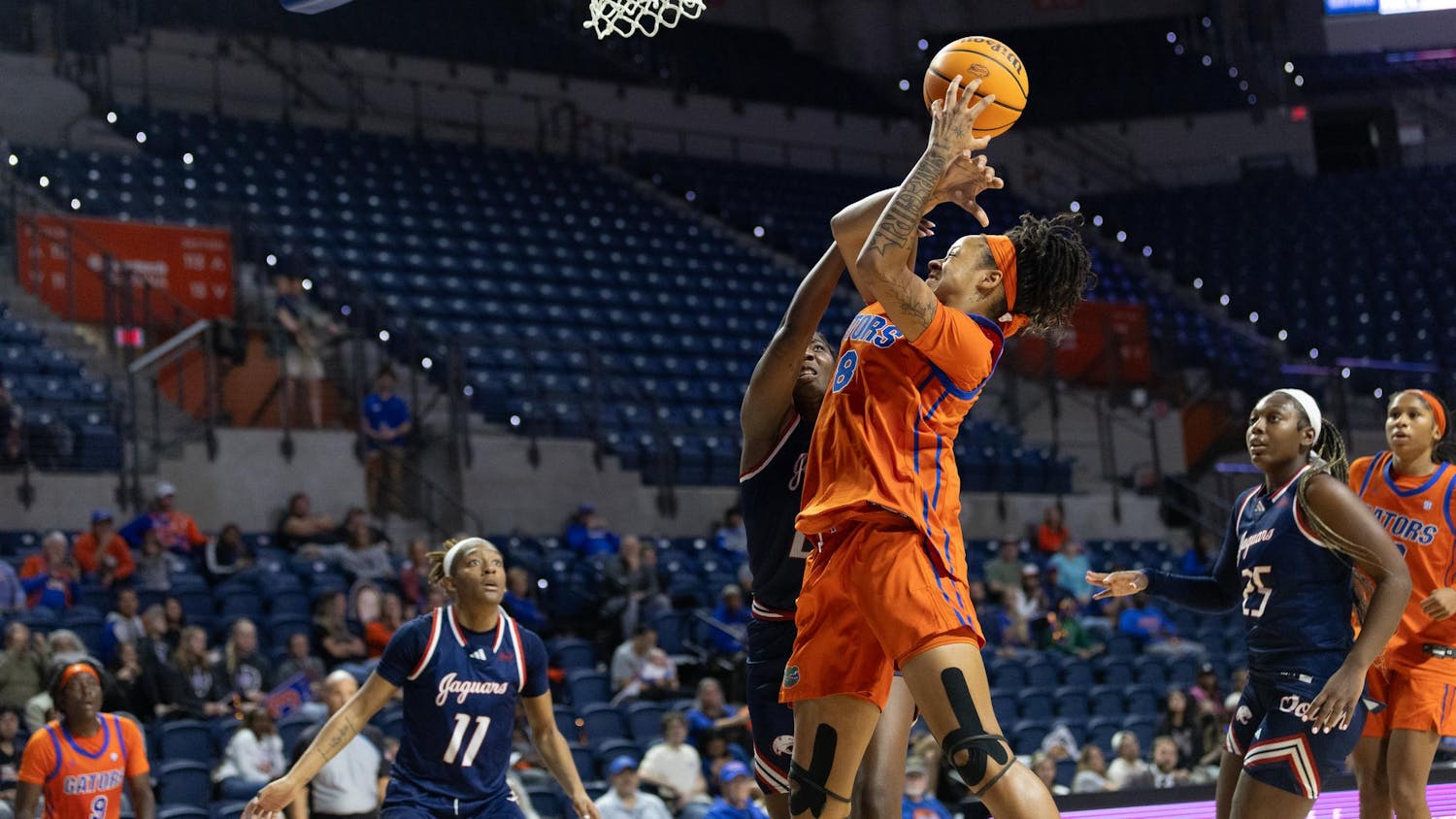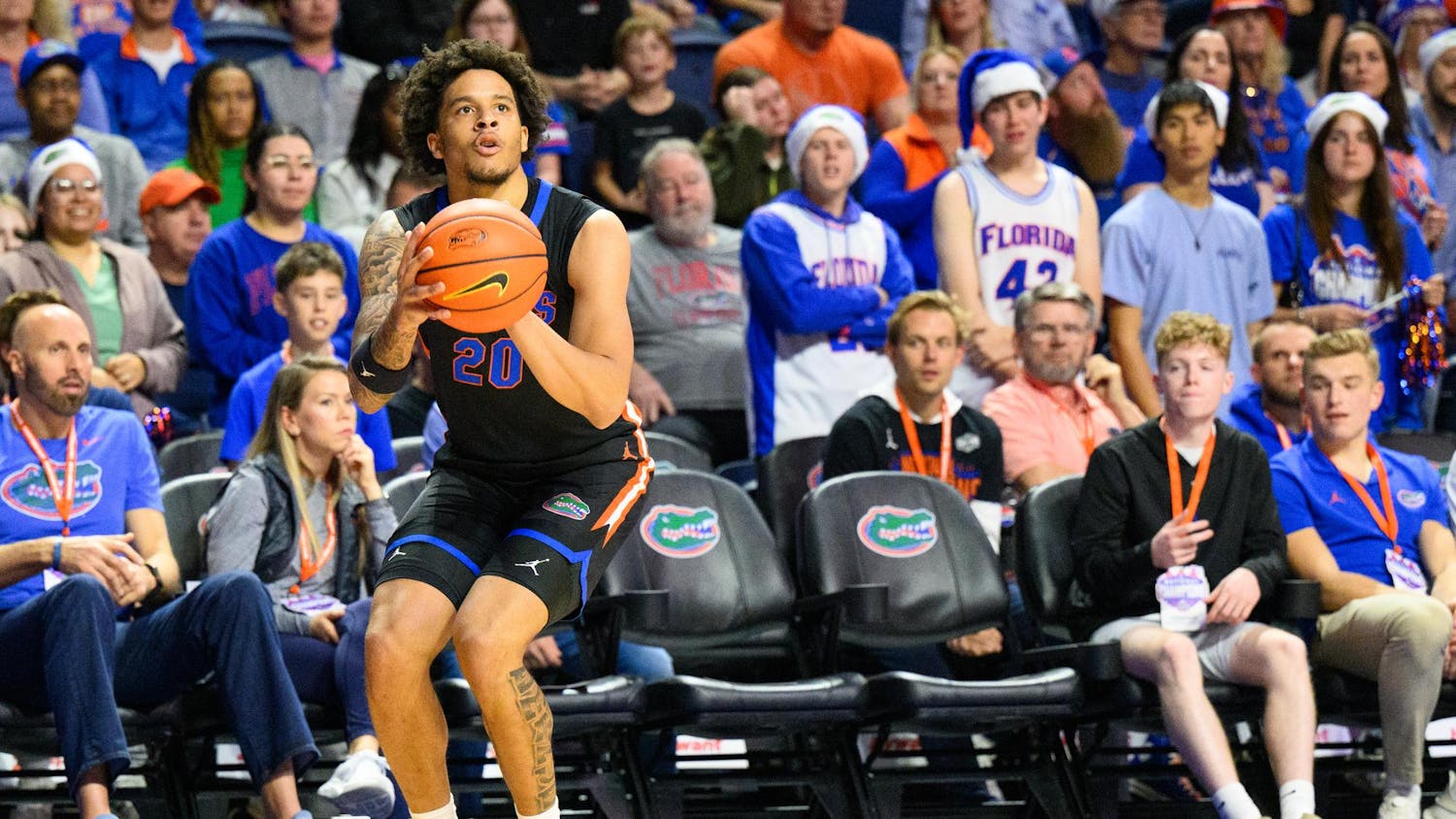Eight Alachua County Public Schools K-12 teachers participated in the two-day “Chewing on Change” workshop last week to better understand science education standards through a deep dive into horse fossils Sunday.
Educators toured fossil exhibits at the Florida Museum of Natural History alongside mammal paleontologists. Afterward, teachers made posters charting the horse’s evolution using what they learned, experiencing a lesson plan from the seat of a student.
The event was part of the Scientist in Every Florida School (SEFS) program, which allows teachers to connect with a scientist who will co-teach a lesson in their classroom later in the semester.
Lisa Langley, a fourth-grade teacher at Kimball Wiles Elementary School, said the workshop’s emphasis on physical teaching guided her in presenting abstract topics like evolution to an elementary classroom.
“It’s stuff we can use,” Langley said. “It’s a hands-on, lines-on type of learning.”
While Florida education standards include evolution as early as third grade, Langley said most of the curriculum felt geared toward middle and high school.
Concrete examples — like fossil exhibits and posters showing the scale of the animal over time — would ideally help younger children grasp the concepts easier, she said.
The workshop’s focus on horses, paleontologist and UF professor Bruce MacFadden’s area of expertise, was inspired by their evolutionary ties to climate change.
“Horses have a very rich record over the past 50 million years of their evolutionary history,” MacFadden said.
Climate change likely heavily influenced the geographical distribution and physical evolution of horses, changing their diets and affecting their teeth sizes over time, according to MacFadden’s studies.
While most grade levels won’t learn the full depth of horse evolution, the topic provides a starting point for these standards and others, involving evidence and the scientific method.
Ryan Wolf, a Santa Fe High School environmental science and chemistry teacher, said expert involvement allows students to get a professional scientific experience that general educators lack.
“I think the SEFS program overall gives a real-world perspective,” Wolf said.
Teachers began collaboration in the workshop, not only working with MacFadden but also undergraduate interns and county curriculum coordinators throughout the two days.
Interns not only participated, but will co-teach lessons in the future as part of SEFS.
Kaitlyn Krinsky, SEFS intern and UF geology sophomore, said the mixture of experience allowed teachers and interns to help each other adapt the lessons to their situation.
“The workshop is kind of integrating us with those teachers and adapting our program to fit each grade level,” Krinsky said.
The program also promised a $500 stipend to teachers who completed the workshop and its follow-up requirements. The educators received lesson plans and classroom resources to ensure they could bring back what they learned without cost as a burden.
Lisa Sauberan, Alachua County science curriculum specialist, said the teachers’ efforts throughout the workshop could create a seamless science curriculum for children as they grow up.
“This theme can run from elementary to middle to high school,” Sauberan said.
To complete the program and receive their stipend, teachers will need to complete additional check-ins and schedule their scientist visits in the coming months.
Contact Aidan at abush@alligator.org. Follow him on Twitter @aidandisto.

Aidan Bush is a fourth-year journalism major and the Summer 2024 Editor-in-Chief of The Alligator. In his free time, he likes to listen to music and go kayaking.






